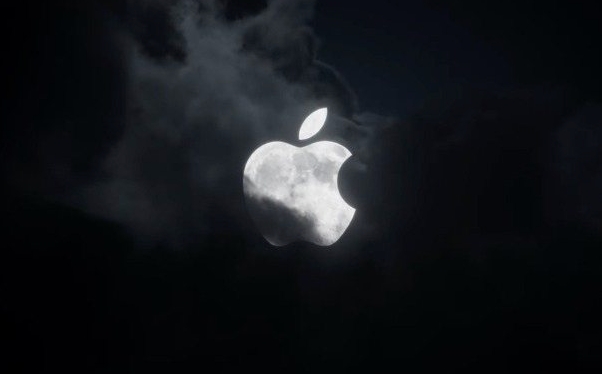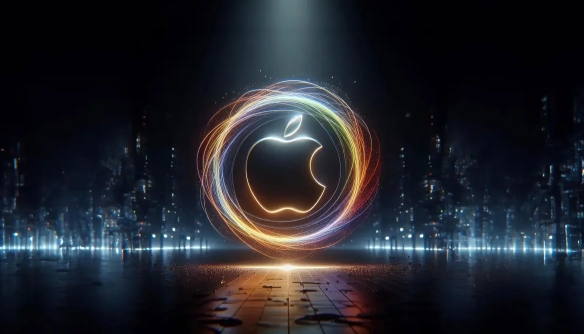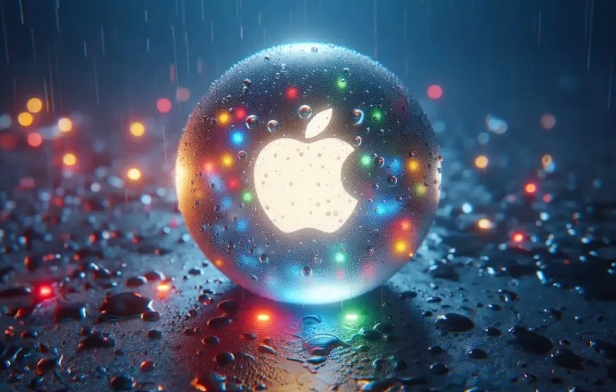There are many practical ways to take screenshots of Mac. 1. Use Command Shift 3 to take screenshots, which is suitable for quickly saving full-screen images; 2. Use Command Shift 4 to take some areas of screenshots and drag to select, which is suitable for screening specific windows or interfaces; 3. Use the system's own "Screenshot" tool to realize the functions of timed screenshots, screen recordings, etc.; 4. Press the Control key to copy the screenshots to the clipboard for easy pasting and use. These methods meet the needs of different scenarios and improve operational efficiency.

Screenshots are actually quite simple on Mac, but many people may only know the most basic method, and they will easily get stuck when encountering different scenarios. In fact, depending on the needs, shortcut keys, tools and operating methods are different. The following are several common and practical methods.

Screenshot of the entire screen: the most direct shortcut keys
If you need to save the entire screen, just press Command Shift 3 to complete it. This method is suitable for quick screenshots, such as seeing an error message that you want to save and send to others for viewing.

- After the screenshot is completed, the image will automatically appear on the desktop.
- If you don't see the picture after pressing, check whether you accidentally touched other key combinations
- If you want to edit the screenshot immediately, you can try adding a Control key (it will be explained in detail later)
Screenshots: Flexible and commonly used
Many times we don’t need the entire screen, we just want to capture a certain window or an area. At this time, you can use Command Shift 4 , and then the mouse becomes a cross cursor and drag to select the part you want to take.
- After releasing the mouse, the screenshot is completed, and the same is saved to the desktop by default.
- If you want to take a screenshot of a window, you can click the space bar after holding down the shortcut key. The cursor will become a camera icon, and then click the target window.
- This method is suitable for making tutorials, sharing information or recording a specific interface
Using the screenshot tool: Not only can you take a screenshot but also record screenshots
macOS comes with a "screenshot" application (can be found through the launcher or Spotlight). It not only allows screenshots, but also records screens, and has richer functions than shortcut keys.

- After opening the screenshot tool, you can select timed screenshots, full screenshots, partial screenshots and other modes.
- Click "Options" to set the location where the screenshot is saved, whether the mouse pointer is displayed, etc.
- The screen recording function is in the "New" button drop-down menu, which supports recording system sound and microphone.
Quick edit after screenshot: Control tips for blessing
What many people don’t know is that if you add the Control key when taking a screenshot, the screenshot will not be saved directly into a file, but will be copied to the clipboard. In this way, you can directly paste it into WeChat, email, and documents.
- For example, if you want to take a screenshot and send a WeChat message, just use Command Control Shift 4 to directly command V
- If you just take a part of the screenshot and edit it immediately, this method is very convenient
- Screenshots in the clipboard will not take up desktop space, but will be lost after shutting down or restarting.
Basically all that is it. The screenshot mechanism of Mac is not complicated, but a little more understanding can save a lot of trouble. Functions like recording screens and copying to clipboards are not used much, but they are very useful at critical moments.
The above is the detailed content of How to take a screenshot on Mac. For more information, please follow other related articles on the PHP Chinese website!

Hot AI Tools

Undress AI Tool
Undress images for free

Undresser.AI Undress
AI-powered app for creating realistic nude photos

AI Clothes Remover
Online AI tool for removing clothes from photos.

Clothoff.io
AI clothes remover

Video Face Swap
Swap faces in any video effortlessly with our completely free AI face swap tool!

Hot Article

Hot Tools

Notepad++7.3.1
Easy-to-use and free code editor

SublimeText3 Chinese version
Chinese version, very easy to use

Zend Studio 13.0.1
Powerful PHP integrated development environment

Dreamweaver CS6
Visual web development tools

SublimeText3 Mac version
God-level code editing software (SublimeText3)

Hot Topics
 How to use an iPad as a second display for Mac
Jul 03, 2025 am 01:01 AM
How to use an iPad as a second display for Mac
Jul 03, 2025 am 01:01 AM
To use the iPad as a Mac sub-screen, you can use the Sidecar function. The steps are as follows: First, make sure the device meets the requirements (Mac will run macOSCatalina and above after 2016, and iPad requires iPadOS13 or above); then go to "System Settings" > "Display" on the Mac, click "Add Monitor" and select iPad to connect; if it is unable to connect, you need to check whether Wi-Fi and Bluetooth are on, and make sure the two devices are in the same network environment. In terms of connection mode, wireless is suitable for daily office work but may have delays, while wired is more stable and supports charging. The display mode is divided into two types: extension and mirroring. It is recommended to use extension mode to improve work efficiency. In addition, it can also be achieved through preferences
 How to set up file sharing between two Macs on the same network?
Jul 14, 2025 am 12:08 AM
How to set up file sharing between two Macs on the same network?
Jul 14, 2025 am 12:08 AM
To share files between two Macs on the same network, first make sure that the two devices are connected to the same LAN, then enable file sharing on the host, set shared folders and access permissions, and then connect from another Mac through the access sidebar or manually enter the SMB address, and finally you can browse, copy or transfer files. Common problems include waiting or restarting the network when the device cannot be discovered. If the permissions are incorrect, you need to check the username, password and sharing settings. If the connection fails, you can try the SMB address. If the firewall blocks, you can temporarily close the test.
 How to find large files on my Mac?
Jul 01, 2025 am 12:06 AM
How to find large files on my Mac?
Jul 01, 2025 am 12:06 AM
To free up Mac storage space, you can use three methods to find and process large files: 1. Use the system's own storage management tool to view the "big file" list in "About Native" - ??"Storage"; 2. Set file size and modification time in Finder to search for large files; 3. Use third-party tools such as DaisyDisk, OmniDiskSweeper or GrandPerspective to scan and visualize disk usage. Each method has its own advantages, the system tools are convenient and fast, Finder provides more accurate search options, and third-party software provides stronger analysis functions. Remember to clear the wastebasket after deleting it to avoid remaining space.
 How to use a Windows keyboard on a Mac
Jul 08, 2025 am 12:12 AM
How to use a Windows keyboard on a Mac
Jul 08, 2025 am 12:12 AM
When typing on a Mac using a Windows keyboard, the Win key corresponds to the Command key and the Alt key corresponds to the Option key; 1. Understand the key mapping: The Win key replaces the Command key for commonly used shortcut keys such as Command C/V, the Alt key replaces the Option key for special symbol input, and the right Alt key may be mapped to Control or other functions; 2. Adjust the keyboard mapping can be customized through system settings or third-party tool Karabiner-Elements; 3. In terms of function keys and multimedia key support, the F key needs to be used with the Fn key, the default brightness and volume function can be adjusted, and some brand shortcut keys are incompatible and need to be customized; 4. Common shortcut key comparison includes copy and paste.
 Why is my Bluetooth mouse lagging or stuttering on my Mac?
Jul 03, 2025 am 12:11 AM
Why is my Bluetooth mouse lagging or stuttering on my Mac?
Jul 03, 2025 am 12:11 AM
Latency or lag on a Bluetooth mouse on a Mac is usually caused by a variety of factors, including wireless interference, low battery, system problems, or multi-device connection overload. 1. Wireless device interference: Keep Mac and mouse away from interference sources such as routers, USB3.0 devices, or switch Wi-Fi to 5GHz band. 2. Mouse battery level is insufficient: Check the battery status and replace the battery through the system settings or the mouse’s own indicator light. 3. The system or Bluetooth driver is not updated: Go to system settings to update macOS and try to reset the Bluetooth module through the debug menu. 4. Too many Bluetooth devices: disconnect unused peripherals, or use a Bluetooth USB adapter to share the load. Gradually checking the above problems can effectively solve the phenomenon of mouse lag.
 How to take a screenshot of a specific area on a Mac?
Jun 29, 2025 am 12:31 AM
How to take a screenshot of a specific area on a Mac?
Jun 29, 2025 am 12:31 AM
To capture a specific area on your Mac, you can use the system shortcut key Shift Command 4 to enter the area screenshot mode, drag and select the area and release it to save to the desktop; if you need more options, press Shift Command 5 to open the screenshot tool, click "CaptureSelectedPortion" to take the area screenshot, and set the saving path and display the mouse pointer; a thumbnail will appear in the lower right corner after the screenshot, click to edit and mark it, and save it after completion.
 What is Migration Assistant on Mac?
Jun 29, 2025 am 12:57 AM
What is Migration Assistant on Mac?
Jun 29, 2025 am 12:57 AM
MigrationAssistantonMacisabuilt-intoolusedtotransferfiles,accounts,apps,andsettingsfromanoldMac,PC,oranotheruseraccount.1.IthelpssetupanewMacquicklywithoutmanualcopyingorreconfiguration.2.Commonusesincludesettingupanewdevice,recoveringdataafteraclean
 How to fix a non-working USB port on a Mac?
Jul 09, 2025 am 12:36 AM
How to fix a non-working USB port on a Mac?
Jul 09, 2025 am 12:36 AM
When the Mac's USB port cannot work, you can try the following methods to troubleshoot problems in turn: 1. Check the connection problem, confirm that the cable and equipment are normal, and clean the interface; 2. Restart the system and check the USB device status in the system report; 3. Reset the SMC and NVRAM (PRAM) to solve potential system abnormalities; 4. Check the system permission settings and device compatibility; 5. Check the hardware damage. If the interface does not respond or the appearance is damaged, professional repairs may be required. In most cases, it can be solved by cleaning, restarting or system adjustment. If it is invalid, hardware failure will be considered.






